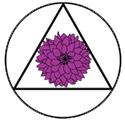Dr. Ellis created this blog post to help peope discriminate between their GI symptoms and Ulcerative Colitis:
Ulcerative Colitis: Know the Warning Signs
Do you suffer from abdominal pain, bloody diarrhea and weight loss? You may have ulcerative colitis (UC), an autoimmune inflammatory bowel disease.
While these symptoms can suggest many disorders, including Crohn’s disease (the other major IBD – inflammatory Bowel Disease), knowing the more common symptoms of ulcerative colitis can help with diagnosis. These include fatigue, joint pain, eye conditions, skin lesions, anemia, fatigue and even depression. Definitive diagnosis is determined through colonoscopy and biopsy.
How to tell when it’s UC
- Abdominal pain. It’s more likely to be ulcerative colitis if it is located in the right side of the lower abdomen and persists over several months, accompanied by a feeling of fullness in the lower right abdomen. The pain won’t be relieved by a bowel movement. By contrast, most abdominal pain resolves itself within 48 hours. Also, you may feel you have to move your bowels, but are unable.
- Bloody diarrhea. With UC, bleeding can be profuse and urgent, especially when you are not eating or even while you’re asleep in the middle of the night. In addition, you may have abdominal pain and a low-grade fever. Standard anti-diarrhetics don’t relieve the symptoms.
- Weight loss and anemia/fatigue. These are due to loss of nutrients from the chronic diarrhea. In UC, weight loss will occur gradually, along with the chronic blood diarrhea and abdominal pain.
- Back and joint pain. In UC, joint pain is common in the knees and elbows. If you are taking nonsteroidal anti-inflammatory drugs (NSAID’s) for pain and feel worse, this may be UC. NSAID’s are known to cause UC flare-ups.
- Eye problems. Beware if you have blurry vision which is sudden, or you notice redness, pain, and/or abnormal sensitivity to sunlight. These symptoms occur in about 10% of UC patients, and will accompany the first three classic UC symptoms listed above.
- Unusual skin rashes. About 70% of patients with these skin lesions have UC. These rashes include pyoderma gangrenosum, painful deep ulcers usually found on the legs; and erythema nodosum, painful red nodules on the front of the legs below the knees or on the arms.
- Rapid heartbeat. A racing heart, more than 100 beats per minute, will be due to the dehydration from chronic diarrhea.
- Fever. The fever of UC is low-grade (one or two degrees above normal), occurs on and off for several months, and accompanies bloody diarrhea and abdominal pain.
- Depression and anxiety. This is common in women with UC, as they often feel afraid or embarrassed to leave home, not knowing where the next restroom is. The diarrhea of UC comes on suddenly, and may even be involuntary, sometimes occurring when you’re asleep. Women often find work and social functions difficult, which may bring on feelings of isolation and frustration.
Naturopathic treatment provides hope for UC patients
While conventional medicine offers pharmaceuticals to treat the symptoms, it does not cure UC. In fact, the only cure for UC is removal of the colon. And pharmaceuticals will always have side effects. By comparison, naturopathic protocol places dietary modification front and center, as 50% of UC patients have food allergies. These food allergies or non-allergic food sensitivities are determined through testing. Other naturopathic treatments include anti-inflammatory botanicals such as Boswellia serrata, and vitamins protective to the colon, especially folic acid. Supplementation of folic acid in the UC patient is crucial, as UC increases the patient’s chances of developing colorectal cancer due to reduced folate. Among the drugs prescribed for UC, sulfasalazine is often the first, which inhibits the absorption of folates.
http://www.lifescript.com/health/centers/ulcerative_colitis/articles/when_to_watch_out_for_ulcerative_colitis.aspx




